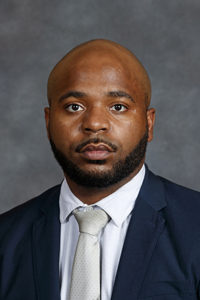Financial literacy requirements proposed
The Education Committee heard testimony Feb. 1 on two bills intended to improve Nebraska students’ personal finance skills.
Under LB327, introduced by Sen. Julie Slama of Peru, students must complete at least one half-credit hour of a personal finance or financial literacy course prior to graduation, beginning in school year 2022-23.

“Without a requirement that all students have a basic understanding of personal finance,” she said, “we’re risking the financial future of our youth.”
LB452, introduced by Omaha Sen. Terrell McKinney, would require each school district to create a financial literacy program and incorporate it into its K-12 curriculum.
The proposed programs would be based on guidelines developed by the state Department of Education and would teach knowledge and skills related to budgeting, credit, checking and savings accounts, loans, stocks and insurance.
McKinney said many young Nebraskans “build their boats as they sail,” learning personal finance through trial and error. LB452 would ensure that all students receive financial literacy instruction, outlined in the state’s social studies standards, as early as possible, he said.
“It is simply unfair and neglectful to expect 17- and 18-year-old high school graduates to thrive economically post graduation with no prior preparation,” McKinney said.

LB452 would require each district to present evidence to the department that it is teaching students financial literacy pursuant to the bill’s provisions each year. Districts that do not provide a financial literacy program or the required annual evidence to the department would lose their accreditation status.
Additionally, the department would collect data on the programs, evaluate their effectiveness and report that information to the Legislature and the State Board of Education.
Richard Baier testified in support of both bills on behalf of the Nebraska Bankers Association. Although Nebraska’s social studies standards already include material on financial literacy and economics, he said, those subjects are a small portion of the curriculum and get “lost in the shuffle” in many school districts.
State Treasurer John Murante also testified in support of both bills, saying the inconsistent teaching of basic financial skills in Nebraska high schools means that some graduates lack basic financial knowledge.
“This is a subject matter … that every person who graduates will deal with every day of their lives,” he said, “and everyone needs to be on an equal playing field.”
Also in support of both proposals was Jennifer Davidson, president of the Nebraska Council on Economic Education. Research has shown that requiring students to complete a financial literacy course in high school results in improved credit scores, reduced delinquency and better student loan borrowing decisions, she said.
Nebraska schools are required to teach economics and personal finance, Davidson said, but the material can be included in other courses, and schools are not required to have a dedicated economics or personal finance course.
A 2018 study she conducted found that 95 of Nebraska’s 244 school districts required a personal finance course for graduation, 210 offered such a course and 34 did not offer a semester-long personal finance course, Davidson said.
Corey Gardner, a senior at Kimball Public Schools, testified in support of LB327. In a recent career education and personal finance course, he said, his classmates struggled with coursework on taking out loans, budgeting and filing tax returns.
“It dawned upon me that — in just a few months — all of us were either going to be going to college or joining the workforce,” Gardner said, “and none of us were prepared.”
Colby Coash provided written testimony in opposition to LB327 on behalf of the Nebraska Association of School Boards. He said the bill is unnecessary because the state Department of Education already has outlined financial literacy in its social studies standards and that many schools already require a financial literacy course as a graduation requirement.
The committee took no immediate action on either bill.

